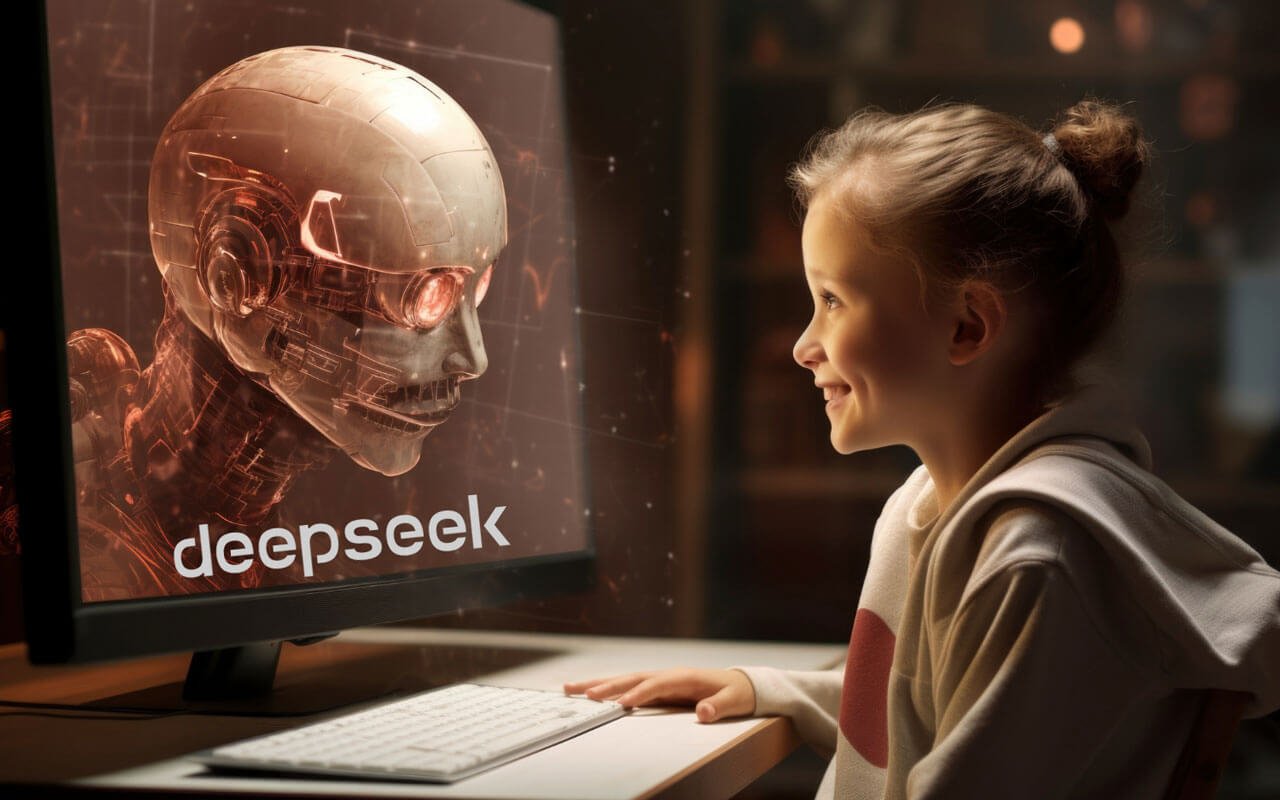Silicon Valley's AI hegemony is being torn apart by a Chinese company. The birth of DeepSeek was not only a technological surprise attack, but also a slap in the face that awakened Western technology giants. Its rise reveals a cruel truth: burning money≠ winner, arrogance = grave.
DeepSeek (Deep Search) was established in July 2023 and was founded by Liang Wenfeng, the former head of Magic Square quantification. Magic Square Quantitative is a top quantitative investment institution in China. It is good at using mathematics and artificial intelligence technology to drive quantitative investment strategies and conduct high-frequency trading. The scale of the fund is developing rapidly. In 2021, the management scale once exceeded 100 billion yuan, and then due to active control, the scale was adjusted to the range of 50-60 billion yuan (data at the end of 2024), stable.Ranked in the first echelon of the industry. Liang Wenfeng deeply recognized the potential of AI technology in quantitative trading, so he incubated DeepSeek through the core team.
In the early days of its establishment, DeepSeek adopted the ”open source +low cost" model, emphasizing the universality of technology. Relying on Magic Square's quantitative financial support, DeepSeek can focus on long-term research and development without external financing. Most of the core members of its team come from top domestic universities such as Peking University and Tsinghua University, and they are completely localized and do not rely on “returnee” talents. This strategy allows it to significantly reduce costs through algorithm optimization (such as low-precision training and dynamic routing) with limited computing resources. For example, only 2,048 Nvidia H800 chips and 5.6 million US dollars were used to train the 671 billion-parameter DeepSeek-V3 model, the cost is only one-tenth that of similar models in OpenAI..
DeepSeek's deep thinking mode shows a detailed thinking chain process, which allows users to observe the reasoning logic of AI, and even reverse learn the disassembly method of complex problems. After its release in January 2025, DeepSeek quickly topped the free app Store list in China and the United States, surpassing ChatGPT and becoming the number one downloaded AI application in the world (January 27, 2025). On the same day, the NASDAQ Stock Index fell by 3%, and Nvidia's stock price plunged by 17% in one day, and its market capitalization evaporated by about US5589 billion. CCTV reporters interviewed Mike Keyi, vice chairman of Nasdaq, who said that DeepSeek will be an important part of the revolution in the field of artificial intelligence; U.S. President Trump said that the emergence of DeepSeek “has sounded a wake-up call to related industries in the United States”; The British "Financial Times" published a commentary article saying that DeepSeek released the open source model DeepSeek-R1 is very attractive to users around the world.
The big guys in Silicon Valley always said that “the future of AI belongs to the United States”" Until now, DeepSeek slapped two slaps in the face-the first slap was called "technology” and the second was called "cost”"
1. The scene of the punch in the face: burning money can't show the real ability
Silicon Valley giants have burned money like paper in the past ten years: the cost of training GPT-4 is about 63 million to 100 million U.S. dollars; training GPT-5 requires nearly 50,000 H100 GPUs, and the market price of each GPU is nearly 30,000 U.S. dollars, and the hardware cost alone is more than 1 billion U.S. dollars.
But DeepSeek directly lifted the table: the latest AI modelcostCut off 90% (5.6 million US dollars), but the performance is benchmarked GPT-4. The secret is just one sentence-use mathematics to defeat the dollar. It's like someone else mining with a golden hoe, and you find a diamond with a wooden stick.
2. Silicon Valley panicked: from “blocked” to "really Fragrant”
On the day when DeepSeek's downloads exceeded 1GPT, the U.S. technology circle completely broke the defense: Nvidia's share price evaporated 3 Xiaomi companies in a day (down 17%), because everyone suddenly discovered that Chinese AI can run without its high-end AI chips.
Microsoft changed its mouth overnight to "seek cooperation”, and OpenAI engineers secretly studied DeepSeek code. The most ironic thing is: Silicon Valley scolds China for "plagiarism” while learning from Chinese innovation.
3. Open source bomb: Both geniuses and lunatics can party
DeepSeek did something to subvert the industry: put the super AI modelOpen source(Free and open).
On the bright side: African programmers and Indian students can develop AI applications with thousands of yuan mobile phones, and the era of Silicon Valley elites monopolizing technology is over.
The bad side: scammers use AI to fake videos, hackers use AI to write virus codes, and governments are still quarreling over “what to do”.
It's like putting a nuclear bomb button in a convenience store to sell-no matter how advanced technology is, the world will be chaotic.
4. Future rules: either keep up or go out
DeepSeek taught the world a lesson:
1) The hegemony of burning money is unsustainable: the future belongs toalgorithmRevolutionaries, not computing power hoarders.
2) Openers lead the world: whoever controls the open source ecosystem will have the right to speak on the next generation of AI.
3) It's useless to chase and intercept China: Huawei breaks through the chip blockade, and DeepSeek subverts the rules of AI-China is redefining the game of technology.
Silicon Valley should wake up-DeepSeek is a National Games-level technological achievement. Cheer for the future of AI equality!


Comment List (0):
Load More Comments Loading. . .